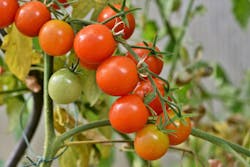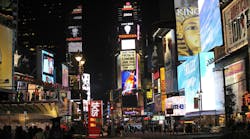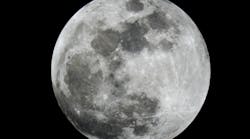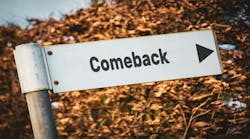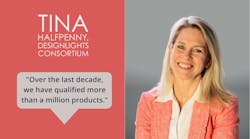Netherlands-based Wageningen University & Research (WUR) has announced the winner of the second edition of its Autonomous Greenhouse Challenge. The Automatoes team that included participants from Van der Hoeven Horticultural Projects, TU Delft, Keygene, and Hoogendoorn Growth Management. All five of the competing teams turned in technology-aided results that bested the efforts of experienced growers operating without the aid of technology.
We first covered the challenge back in March as the five teams were underway. Those five teams had been culled from a much larger group of participants in the first edition of the challenge.
Each of the teams was provided a 96-m2 area of greenhouse space. The provided space included Heliospectra Elixia four-channel LED luminaires and the company’s helioCORE control platform. The teams then were able to install their choice of sensors, cameras, artificial intelligence (AI) capabilities, and IT equipment to allow remote management of the operations. The reference grow was handled by a small team of experienced growers.
The teams competed in growing cherry tomatoes. A jury evaluated each of the five operations and used a complex points system to identify a winner. Points were earned for quality and yield of fruit and for characteristics such as sustainability and AI implementation. The Automatoes team triumphed in profit (a combination of quality and yield), sustainability, and AI implementation.
The profit score category had Automatoes prevailing narrowly over the AICU team. Those two competitors significantly outdistanced the other AI and reference teams. One component of sustainability in the scoring was water usage. And Automatoes used the least water of any team while still producing the most profit. There are more scoring details on the WUR website.
The winning team members include Leonard Baart de la Faille, Tim Tijsma, and Godfried Dol of Van der Hoeven Horticultural Projects; Tamas Keviczky and Neil Yorke-Smith of TU Delft; Niek Bouman of TU Delft and Keygene; Lars Kerkhof of TU Delft and Hoogendoorn Growth Management; and Gerdine van Donge, Moaaz Labash, Rene Beerkens, and Evripidis Papadopoulos of Hoogendoorn Growth Management.
The challenge was organized by WUR and Tencent — an Internet services company and player in AI technology. “We have demonstrated that AI is a game changer for increasing greenhouse productivity,” said David Wallerstein, CXO (chief exploration officer) of Tencent.
The deployment of AI technology in greenhouses is nearing commercial reality. At our HortiCann Light + Tech Conference last year, we had Shivangi Arvind, chief science officer at AgEye Technologies, present on the topic.
We had planned an in-person HortiCann event again this year with the event originally scheduled for Oct. 20 in San Jose, CA. But due to the continuing COVID-19 pandemic, we have made the decision to hold the 2020 event virtually. We will spread it out over two days — Oct. 20 and 21 — so that attendees will not need to devote an entire day to catch the online presentations. Attendance will be free to the virtual HortiCann Light + Tech Conference.
For up-to-the-minute LED and SSL updates, why not follow us on Twitter? You’ll find curated content and commentary, as well as information on industry events, webcasts, and surveys on our LinkedIn Company Page and our Facebook page.
